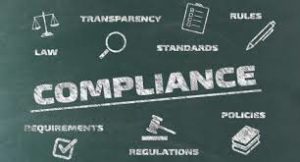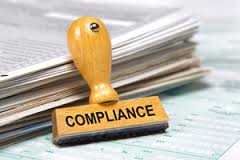The “Economic Costs” of Compliance Mandates
 Economics is extremely useful as a form of employment for economists – John Kenneth Galbraith
Economics is extremely useful as a form of employment for economists – John Kenneth Galbraith
I always enjoy economists and the rigor of economic analysis. It has a logic all its own. Economic theory reveals the power of incentives and disincentives.
Many critics of economic theory fail to see how it applies to real life. I disagree with that narrow view. We operate in accordance with incentives and cost-benefit analyses every day. Sometimes, however, we lack perfect information to make such informed choices.
When you take a step back and look at the important developments surrounding compliance in the last twenty years, it is important to ask who is responsible for imposing compliance requirements and what is the reason for this development in corporate governance. The answer raises some real questions.
Assuming that corporate governance reflects a relationship between corporate managers—board of directors and senior executives – and shareholders, the question becomes whether companies, in the absence of government mandates would create ethics and compliance programs and devote resources to these functions. We will never know the answer to this theoretical question because right now we have a number of regulated entities – e.g. banking, securities – that are required to maintain ethics and compliance programs.
Apart from regulated entities, the Sentencing Guidelines set out a framework for effective ethics and compliance programs but they do not mandate such a program. If a company does not have an effective ethics and compliance program, they would only forego a potential benefit of a reduction in their criminal sentence.
The primary means by which ethics and compliance requirements are imposed on companies is by government enforcement actions. Prosecutors use these enforcement actions, coupled with guidance, speeches and other pronouncements, mandating that companies implement a variety of measures as part of an overall ethics and compliance program.
Most of the enforcement actions reached by companies and government prosecutors involve deferred or non-prosecution agreements. Recently, the government has imposed compliance program requirements as part of guilty pleas.
FCPA enforcement is a perfect example of how settlement agreements contain detailed ethics and compliance program requirements. Some commentators have suggested that prosecutors are not equipped to design and impose these requirements when companies are negotiating settlements. DOJ’s recent hiring of a Compliance Counsel, Hui Chen, is designed to respond to those concerns. It is still too early to see what impact this will have on overall compliance requirements.
Critics of the current regime ignore a critical aspect of compliance. Research has shown, and I have repeated myself on this point, that an effective ethics and compliance program can increase corporate profits. That is an argument for companies; even if they are not subject to government investigation or enforcement, to maintain an ethics and compliance program.
 On the other hand, we have seen corporate leaders allow ethics and compliance programs to dwindle or die rather than invest in the positive returns from implementing such a system. This suggests that corporate leaders sometimes are making economic decisions without access to relevant information on the overall benefits of an ethics and compliance program.
On the other hand, we have seen corporate leaders allow ethics and compliance programs to dwindle or die rather than invest in the positive returns from implementing such a system. This suggests that corporate leaders sometimes are making economic decisions without access to relevant information on the overall benefits of an ethics and compliance program.
While this analysis is interesting as at theoretical matter, it may lead to further economic analysis of the benefits of an ethics and compliance program, the impact that government mandates have on the design and implementation of such programs, and the overall cost to companies in today’s tough economy.















2 Responses
[…] post The “Economic Costs” of Compliance Mandates appeared first on Corruption, Crime & […]
[…] post The “Economic Costs” of Compliance Mandates appeared first on Corruption, Crime & […]